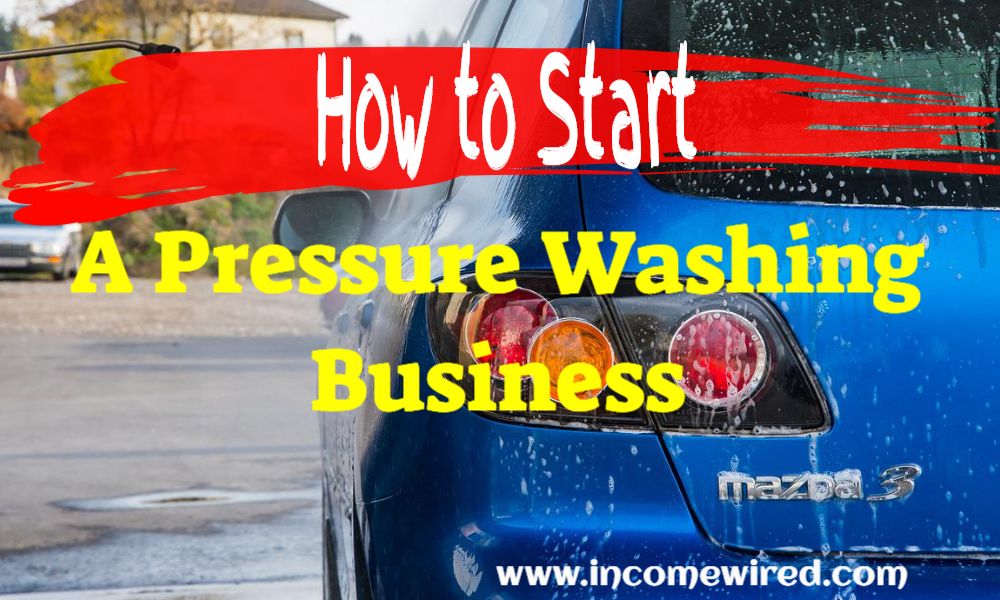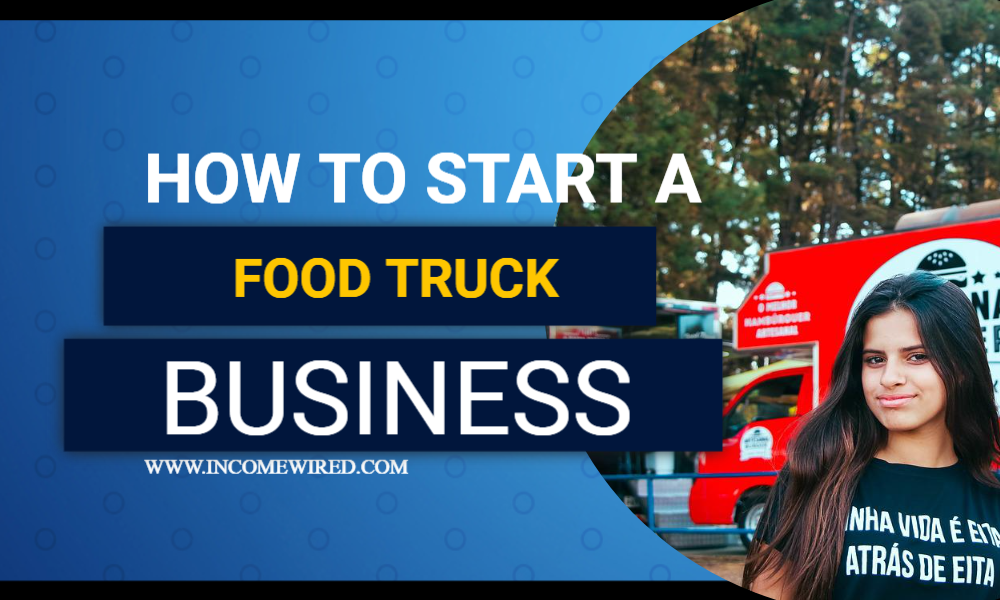we help service-based business owners, freelancers, and aspiring businesses with our content & services & When readers purchase services discussed on our site, we often earn affiliate commissions that support our work. Find out more about Income Wired
Pressure Washing business is a lucrative simple business that involves a model where a company or individual offers services in cleaning driveways, houses, cars, walkways, or even decks using high-pressure machines and getting paid for these services. It is a professional business where individuals get licensed as cleaners or work under agencies. The pressure business has a lot of customers ranging from both residential and commercial property owners who require the services, which is almost every person in the US.
The pressure washing business has become a popular business model in the US with several advantages to business owners. Some advantages include small startup costs, when for a business owner, starting up the business requires few resources. The equipment for the business model is also readily available in the market, making it handy for business owners. Additionally, it is a business where the services are in demand; most people need the services as they are essential in environmental maintenance and home maintenance. As a result, many people are willing to pay for services in pressure washing. Another advantage of this business is the fact that there are very high-profit margins. Given that it requires human labor to run, there are high wages in the cleaning services, and having low startup resources, the profit margins skyrocket, with business owners even making $1,000 a day depending on the daily jobs done. The recurring costs of the business are also cheap, making the profit margins even higher with time.
What is a Pressure Washing Business?
It is a business that uses water to clean by being expelled by a high PSI (pounds per square inch) machine onto a surface to produce a deep cleaned surface. There are different pressure cleaning business types that you will see in the following section here. The pressure cleaning business can be a profession or a side hustle income outlet and, in both ways, can be very successful. It may require no experience to start up, but one needs to learn to use the equipment effectively to have ease while working. Gaining some pressure washing skills will save time and energy and make cleaning easy. You can acquire these skills easily through learning how to operate the pressure machine. It can be as simple as watching some tutorials on how to do it. It may also involve renting a pressure washer and learning to wash from home hands-on through practicing on your property. The pressure washing business is a big business with a market-size value of over $1 Billion in the year 2020, despite the onset of a global pandemic. It gave a financial forecast of approximately $2.3 Billion in revenue by the end of 2020, proving the potential of the business model.
Types of Pressure Washing Business
- Residential Cleaning
It is a type of pressure washing business that targets individual homes in residential areas. The services provided in this business model include vacuuming, washing surfaces like house walls, decks, and driveways, vacuuming, carpet and upholstery washing, window-washing, floor-cleaning, and polishing surfaces. In this model, the residents provide cleaning products of their preference, or the owner may advise on the best cleaning products to use in their homes. At times, owners as well may provide the cleaning equipment. This business model is very lucrative with a multi-billion industry size as all homes often require regular cleaning, such as weekly or monthly. Once excellent services are delivered, one can thrive on referrals which are a crucial part of the business.
- Car Wash Cleaning
It is a combined interior and exterior manual cleaning of a car. A large part of the car wash industry is automated car washes, where cars go through a carwash driveway and emerge from the other side washed, rinsed, and sometimes even waxed. However, the traditional car wash, where manual pressure cleaning on the exterior and interior of the car is still viable today. This pressure wash business model integrates customer needs such as engine wash, steam cleaning of car interiors, gas pumps, car servicing station, and car maintenance stations that contribute to a successful car pressure washing business.
- Air Duct and Vent Cleaning
It is a pressure washing business that involves cleaning dirt or dust that settles in air vents, ducts, chimneys, or furnaces. It is a commercial cleaning service as the target market includes corporate buildings, hotels, residential apartments, and buildings that frequently use heat or air conditioning. This cleaning is essential for mold prevention, viruses, and allergens that tend to cumulate without this service. It is a lucrative business model as urban and commercial areas consider these as essential services for the maintenance of buildings, and so it is an inevitable service.
- Parking Lot & Driveway Power Cleaning
Large open concreted surfaces accumulate dirt and tarnish in color with time. This tarn creates a negative impression on the surface; hence often requires power or high-pressure washing to maintain its original color. It is a unique opportunity created for pressure washing owners, who are helpful to business owners with parking lots and even large residential areas with parking lots and large driveways. This pressure cleaning business requires heavy equipment like chassis-mounted sweepers, large vehicle vacuums, and portable power sweepers. This large equipment makes cleaning a large parking lot more effective and less time-consuming.
Why Start a Pressure Washing Business?
Pressure washing businesses have proven to be successful ventures, especially in 2021. On average, a pressure washer business estimates to make almost $96,000 in the year 2021 from daily pressure washer services. As a result, more people have identified this market gap with a huge target market, which can be filled by starting your own pressure washing business.
A reason why an individual should consider starting a pressure washer business is the high-profit margin that exists in the business. The main expense incurred is equipment purchasing and a few operational costs such as equipment maintenance, vehicle fueling, and servicing. Aside from these, the pressure washing business drives in a lot of income that sets off operational costs. With time, the profit margins grow, becoming very high with little to no recurring expenses, which you will see in the business plan breakdown.
Another main reason is the large target market that exists. The pressure washing business offers services that are necessary to almost every building that exists. Moreover, many people do not have house pressure washers or the time or capacity to do these services themselves. As a result, so many households and buildings require the services creating a vast target market for the pressure washer business owners. With the popularity of the services growing, more people are willing to pay for the pressure washer services, so despite existing key players, there is still a market gap and room for more pressure washer businesses.
Pressure Washing Industry/Market Overview
The pressure washer business has seven global regions: MEA (the Middle East and Africa), Western Europe, North America, Asia (excluding Japan), Japan, Latin America, and Eastern Europe. Among the seven regions, North America is a pressure washing business major shareholder with a 35% market share, contributed to by the massively growing ca industry and exterior cleaning industries that offer services in pressure washers. On the other hand, it has been forecasted Asia to have the fastest growing market share in the pressure washing business due to the world’s highest developing countries being within the region that is India and China. In addition, it has shown that India and China have increasing housing needs due to the increased population that has led to the demand for the pressure washer business.
The pressure washers market ha is to expect a CAGR growth of over 3.5%, with a market size estimate moving from USD 1.8 billion in 2018 to 2.5 billion by 2025. Worldwide, the pressure washers market has moderate to a high-entry barrier for new businesses. It is due to the key companies, such as Briggs & Stratton, Stephen Rogers, Ilia Nazarov, Ryan Woods, Revive Power Washing Inc, and Generac Power Systems, Inc., among others. However, as a new pressure washer business, investing in advertisements, social media presence, promotional materials, and return customers will immensely contribute to gaining a competitive advantage over the key players.
A Pressure Washing Business: Market Analysis
- The approximate number of businesses in the US: 86,000 pressure washer cleaners
- Average revenue: $95,796 per year
- Average Profit margin: 8.44%
- Market Size value as of 2018; $1.8 billion
- Market Size value as of 2020: $2.5 billion
- Revenue forecast to 2026: $3.0 billion
- Growth rate: CAGR of 4.2%
- Key competitors: Revive Powerwashing Inc, Generac Power Systems, Inc., Stanley Black & Decker Ltd, Briggs & Stratton, Stephen Rogers, Ilia Nazarov, Ryan Woods, Ole Burns, Allen Cox, Corey Edmonds, Karcher, Genereac Pwer System Inc, SunJoe and Craftsman.
Pressure Washing Business Start-up Analysis
| Production equipment | $30,000 to $50,000 |
| Supplies (food ingredients & water) | $10,000 – $15,000 |
| Insurance and Legal fees | $4,500 to $6,000 |
| Permits and licenses for the business | $5,000 to $10,000 |
| Business Software | $1,000 to $3,000 |
| Small business insurance | $4,000 to $10,000 |
| Disclaimer:
These costs may vary, depending on location, competition, supplies, sources, market share & your personal decisions, but they offer a good idea of what you will spend to start. Our Data are purely informational and should not be taken as legal or financial advice. |
Start a Pressure Washing Business in these 11 Steps:
- Creating a Pressure washing Business Plan
- Legalize Your Pressure Washing Business
- Setup Your Pressure washing business for Taxes
- Setting Up Your Pressure washing business Bank Account & Exploring Funding for Your Business
- Pressure washing Business Accounting & Invoicing Setup
- Acquire the necessary permits & licenses for your Pressure washing business
- Get Required Pressure washing Business Insurance
- Grow your Pressure washing Business brand: Helpful Tips
- Create an Online Pressure washing Business Presence
- Getting Leads & Calls for Your Pressure Washing Business
- Get to know Your Pressure washing Business and Research local competition
Step 1: Creating a Pressure Washing Business Plan
Business plans include plans and strategies that enterprises use to articulate the success of their businesses in any market. Ideally, business plans include marketing, financial, human resources, and product and service offering information, allowing the business owner to convince investors about the business venture’s viability. Business plans are necessary, forging pathways to anticipate and mitigate challenges in the Pressure Washing business. For instance, market analysis and models allow the business owner to determine the best advertising options to capture the attention of their target audience.
Cash-flow projects and sources of capital facilitate ways for a pressure-washing business to overcome financial difficulties and pursue better consumer engagement and service quality dynamics. Notably, decision-making is vital in achieving milestones, especially when pressure-washing faces risks. In this case, the business plan provides measures to implement to overcome them as the business owner keeps accountability for their business.
Essentials of What a Pressure Washing Business Plan Contains are:
- Executive summary of the overall business
- General description of the company
- Introduction
- Organizational structure
- Market research and competitor analysis
- Description of your products and services
- How you plan to market and sell your products
- Financial projections and funding plans
- Sales & Marketing Strategies
- Roadmap for your business
- Projected growth based on your business plan
- Appendix
What are the Costs Involved in Opening a Pressure Washing Business?
The costs involved in opening a pressure washing business can vary depending on the size and scope of your operation. For example, if you plan to offer mobile services, you’ll need to factor in the cost of a vehicle and equipment. If you’re starting a brick-and-mortar business, you’ll need to lease or purchase commercial space and outfit it with the necessary equipment. In either case, you’ll also need to factor in the cost of marketing and advertising your business.
Assuming you have the start-up capital needed to get your business off the ground, the biggest ongoing expense for a pressure washing business will be purchasing the cleaning supplies and equipment needed to do the job. Pressure washers themselves can range in price from a few hundred dollars for a basic model to several thousand dollars for a top-of-the-line machine. Add in the cost of hoses, nozzles, detergents, and other supplies, and you’re looking at a significant investment.
Another cost to consider is insurance. Pressure washing can be a dangerous business, and accidents do happen. To protect yourself, your employees, and your customers, you’ll need to carry liability insurance. This will help cover the costs of any property damage or injuries that occur as a result of your work.
Finally, don’t forget to factor in the cost of licenses and permits. Depending on where you’re located, you may need to obtain special permits in order to operate a pressure-washing business. And, of course, you’ll need to obtain the necessary business licenses and permits before you can open for business.
In light of these costs, investments are important in achieving the financial obligations of the pressure washing business.
Common Supplies Required for a Pressure Washing Business
- Commercial vehicle
- Gasoline
- Water
Common Equipment Required for a Pressure Washing Business
When sourcing this equipment, one should purchase new equipment to minimize overall operational costs in the long run. However, if one may not afford brand-new equipment, there are other ways to source the equipment without costing you an arm.
The pressure washing equipment is readily available in hardware stores as a complete kit and can cost from $1,000-$2,500, depending on the manufacturers. The equipment kit is accessible online, such as tool-barn, amazon, eBay, and manufacturer websites. Additionally, one can start by hiring pressure washer equipment from local hardware that offers these services for new business owners as they test the market.
- Electrical grounds for the wash gun and washing system
- Pressure washer commercial grade
- Water tank
- Insulator washers
- 2 vacuum stations
- 1 high-pressure wand self-service bay
- Fifty-foot fully automatic tunnel.
- Hoses, Nozzles, & Accessories
- Vehicle (Preferably a truck or SUV)
- High-pressure dead-man type water wash gun
- Cleaning supplies
- Ladder
- Portable mobile device
- Business software for clients
- Stainless steel water storage tank
- Centrifugal water pump
What are the Ongoing Expenses for a Pressure Washing Business?
The ongoing expenses for a pressure washing business are relatively low. The biggest expense is likely to be the cost of the equipment, which can range from a few hundred dollars to several thousand dollars. Other significant costs include marketing and advertising, insurance, and licenses and permits. Operating costs such as fuel, water, and electricity will also need to be considered. It is important to carefully track all expenses so that they can be accurately reflected in the financial statements of the business.
Who is the Target Market?
It is important to note that the pressure washing industry is not only composed of businesses that provide services to customers, but also of the manufacturers and suppliers of pressure washing equipment. The target market for pressure washing businesses, therefore, includes both the end user (i.e. the customer) as well as other businesses in the industry.
When it comes to customers, there are a few key segments that are typically targeted by pressure-washing businesses. These include:
- Residential customers: This is by far the largest group of customers for pressure washing businesses, as most homeowners will require the services of a pressure washer at some point or another.
- Commercial customers: Pressure washing businesses also serve a large number of commercial customers, such as office buildings, retail stores, and restaurants.
- Industrial customers: In addition to commercial customers, there is also a significant market for pressure washing services among industrial facilities and manufacturers.
- Government customers: Pressure washing businesses also serve a number of government clients, such as schools, hospitals, and military bases.
Typically, most pressure-washing businesses are successful when there are different service offerings to customers as they prove their expertise in the various tasks involved. However, seeking customers must pursue a strategic marketing plan that situates the brand better with its target audience. Most pressure-washing businesses, seeking consumers from the general population, devise ways to acquire contracts that ensure long-term commercial projects.
How Does a Pressure Washing Business Make Money?
Pressure washing businesses make money through a flat rate charged for the services contracted by consumers. In this case, the business owner may charge $50-$1,000 for cleaning services, including detailing, when it involves cars. Detailing is the process of furnishing one’s product after pressure washing. Also, the pressure business owner may seek additional services to provide customers, including delivery.
How Much Can You Charge Customers?
Pressure washing businesses typically charge by the hour, with rates varying depending on the type of service being provided, the size of the job, and the geographic location. For example, most residential customers will be charged between $75 and $150 per hour, while commercial customers may be charged between $100 and $250 per hour. Industrial customers and government clients may be charged even higher rates.
In addition to hourly rates, some pressure-washing businesses also charge flat fees for specific services. For instance, many businesses will charge a flat fee for driveway cleaning, deck cleaning, or gutter cleaning. Flat fees are typically based on the size of the job and can range from a few hundred dollars to several thousand dollars.
How Can You Make Your Business More Profitable?
Making the pressure washing business more successful involves a series of recommended strategies by other thriving businesses in all sectors.
There are a number of ways to make a pressure washing business more profitable. One way is to focus on commercial customers, as they tend to be the most lucrative. Another way is to offer additional services such as gutter cleaning or window washing. Additionally, many businesses find it helpful to specialize in a particular type of pressure washing, such as concrete cleaning or graffiti removal. By focusing on a specific niche, businesses can become known for their expertise and command higher rates. Finally, another way to increase profitability is to offer discounts for customers who book multiple services or sign up for recurring service agreements..
What Will You Name Your Business?
The business will be called XXXX. Business names are important, enabling legal representation in taxing and achieving revenue in any local, national or global economic system. Additionally, avoiding personal liability is usually recommended and requires a business name that sets aside a unique identity for identification with customers and other stakeholders.
Step 2: Legalize Your Pressure Washing Business
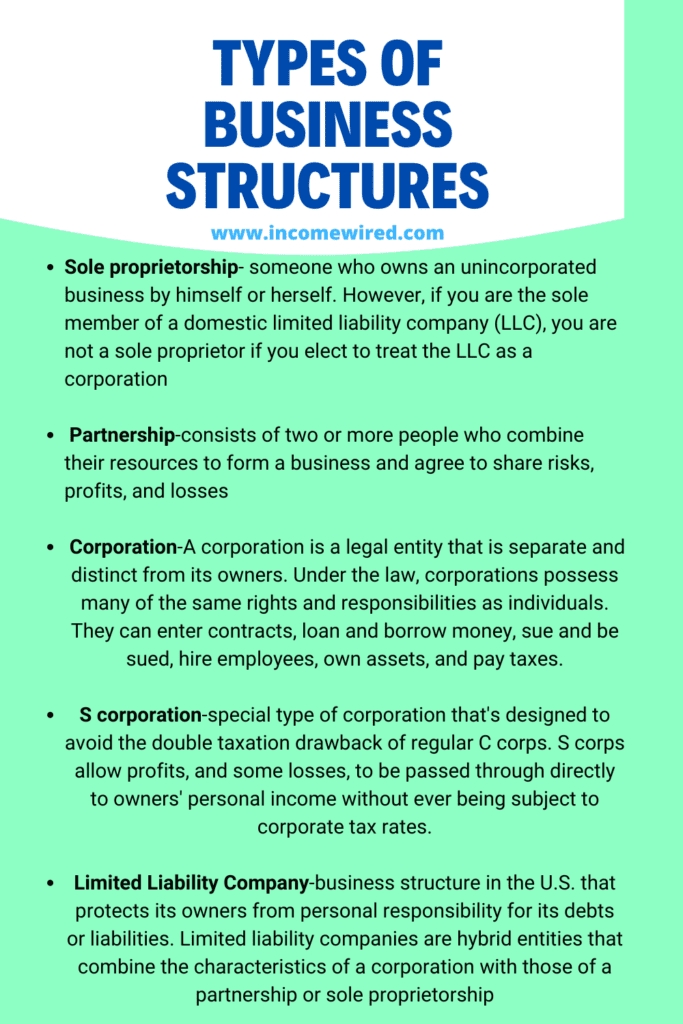

Step 3: Setup Your Pressure Washing Business for Taxes
To operate a pressure washing business in the United States, the business owner must seek an Employer Identification Number (EIN) that enables taxation. The number is similar to a social security number and allows one to perform tax and business operations.
Step 4: Setting Up Your Pressure Washing Business Bank Account & Exploring Funding for Your Business
Owners of pressure-washing businesses must create bank accounts that allow seamless transactions between them and consumers. A bank account facilitates the financial management of a business, having options to offer credit to clients. Moreover, seeking funds to invest in the business, a bank account is suitable for securing loans or relationships with investors.
Most Common Types of Funding to Start Your Catering Business
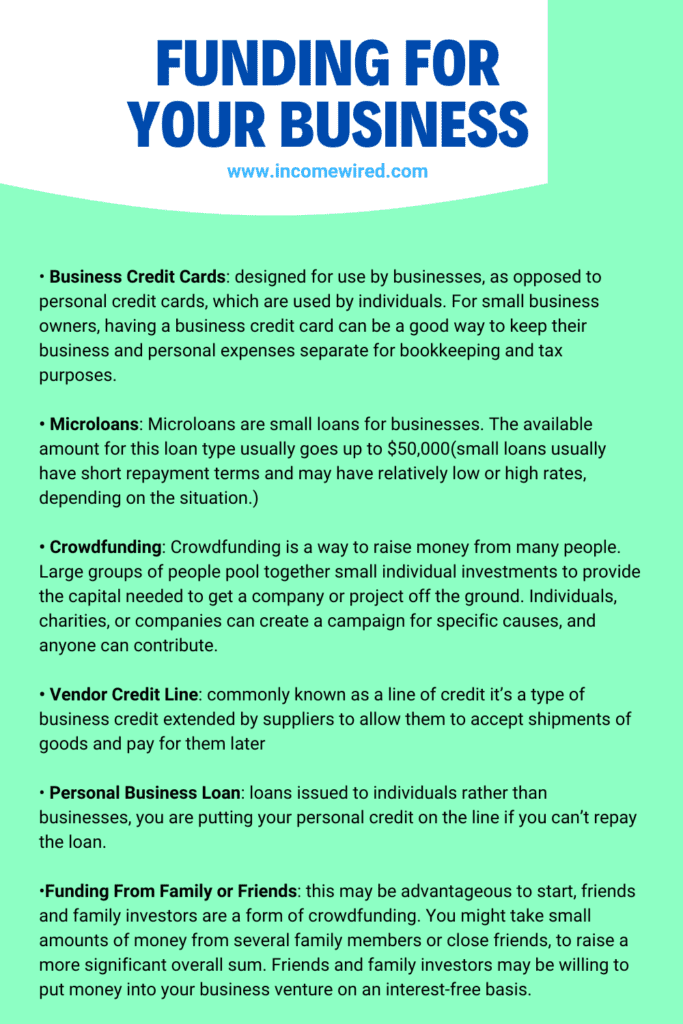

Step 5: Pressure Washing Business Accounting & Invoicing Setup
Retail sales must be through credit cards, cash, or checks in a Pressure Washing business. Consequently, creating permanent records of sales transactions allows for accountability. Business owners must also perform accounting principles, including recording sale slips, invoices, and credit sales. Also, this helps with tracking losses and opportunities for profit. Sales records must include the invoice number, date, amount, collection letters, running balances, and notices. Facilitating accurate, timely, and concise invoices is imperative in securing the financial stability of the pressure washing business. The business owner also discovers opportunities to achieve profitability or reduce loss. Software such as QuickBooks is advisable for use.
Markate- a software that helps you manage everyday business activities, e.g., estimates, work orders, invoices & even scheduling
Step 6: Acquire the Necessary Permits & Licenses for Your Pressure Washing Business
State and Local Business Licensing Requirements
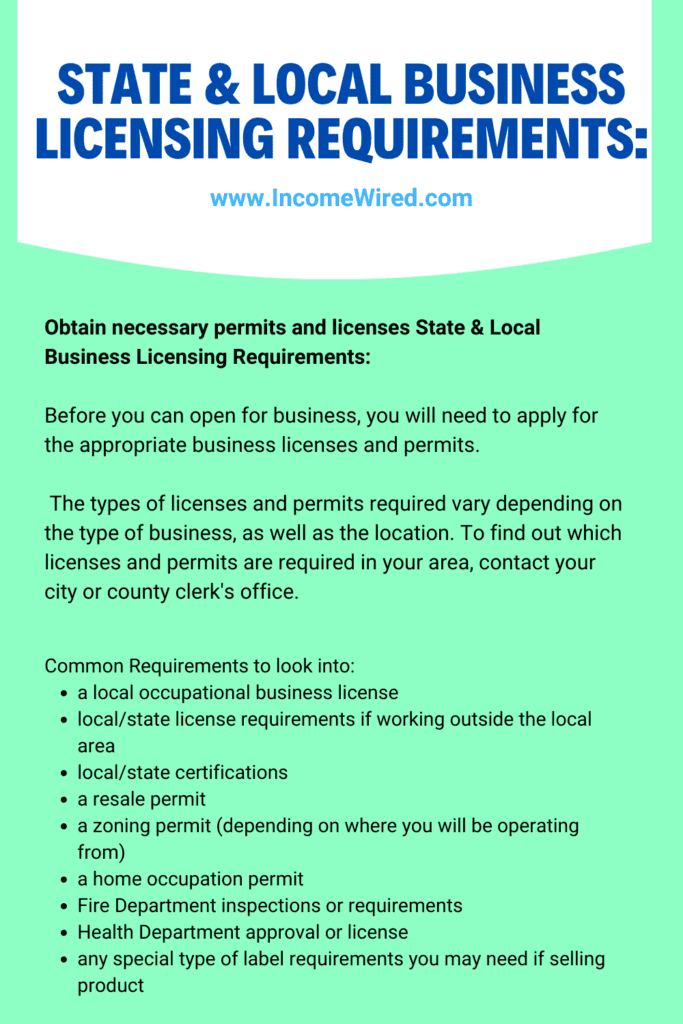

Step 7: Get Required Pressure Washing Business Insurance
Getting the necessary business insurance coverage is important to protect the business owner from potential liabilities. In this case, approaching different insurance providers is recommended to determine the best policies for one’s business.
There are many types of business insurance policies available, so it is important to speak with an insurance agent to determine which type of coverage is right for your business.
some common types of business insurance include:
- general liability insurance
- product liability insurance
- property damage insurance
- business interruption insurance
- worker’s compensation insurance
Get a Free Quote Here
Step 8: Grow Your Pressure Washing Business Brand: Helpful Tips
Like in any other business, the first step in starting a pressure washing business is choosing the business model to be followed and the structure you will use in the business. It breaks down to what type of business you will run. Is the business a sole proprietorship where you have the full business liability, or would you want to establish a business partnership? An individual can choose to distribute personal liability and absorb the business structure of a limited company or a corporation. If this is the case, interested parties need to be identified and peached to, then proceed with the terms and conditions of the partnerships. There are stipulated regulations: how to carry out a business, how to consolidate partnerships as corporations, and so on, depending on the State or country the business will operate. Furthermore, different States or countries charge different rates for business identity, and so as the individual starting the pressure wash business is within your responsibility to do due diligence in identifying the charges and fulfilling the regulation.
Step 9: Create an Online Pressure Washing Business Presence
Achieving an online presence is important for the pressure washing business, with the digital and social media platforms allowing a wider engagement with consumers. The pressure washing business should have a website, mobile phone application, and social media handles that provide information about its services. Moreover, the owners should have digital communication means with customers as this creates better ways to upsell their services. The list below shows the marketing tools used to enhance a brand’s presence on online platforms:
- FAQ’s Awards and accolades
- Testimonies of clients
- Contact information with location links
- Client resumes and lists
- Buttons to react to social media posts.
Step 10: Getting Leads & Calls for Your Pressure Washing Business
Generating leads is a culmination of one’s marketing strategies, underlining the contact points with customers on different journeys. SEO and email marketing are relevant for getting leads to a website as they invite customers to explore information about the brand. It is crucial to separate business and personal phone numbers to ensure the company can achieve its goals without distractions. Moreover, this creates a professional appeal.
Step 11: Get to Know Your Pressure Washing Business and Research Local Competition
To be successful in the pressure washing industry, it is important to have a strong understanding of both your business and the local competition. Here are a few questions to consider:
- What services does your pressure washing business offer?
- What are your unique selling points?
- What are the prices charged by other pressure-washing businesses in the area?
- What is the quality of service provided by other businesses in the area?
By answering these questions, you can develop a clear understanding of both your business and the local market, which will put you in a better position to succeed.
Frequently Asked Questions for a Pressure Washer Business
1. What are the types of pressure washers in the industry?
The pressure washer types’ main classifications are portable or fixed pressure washers. Portables can be moved around and offer door-to-door services, mainly for immovable surfaces such as parking lots, household surfaces, and decks. Fixed pressure washers are those in a permanent location that services movable surfaces like carpets, fabrics, cars, etc.
2. How can I start a pressure washer business?
The startup of a pressure washer business has a few requirements that may go as low as hiring a pressure washer, learning how to pressure wash, and begin finding door-to-door clients that require pressure washing services.
3. Which is the most lucrative area to start?
The target market for pressure washing businesses is readily available. Many households require pressure washing services to preserve their surfaces and maintain their homes, so your target market is easily accessible in your current locality.
4. Why start a pressure washer business?
The pressure washing business has very high-profit margins and could easily create self-employment opportunities or part-time hustle. The startup cost is super low and has few operational costs making the profit margins very high with time. As estimated, a self-employed pressure washer could profit as high as $1,000 daily working 8 hours.
5. How to access pressure washers for your pressure washing business?
The pressure washing equipment is readily available in hardware stores as a complete kit and costs from $1,000-$2,500, depending on the manufacturers. The equipment kit is accessible online on tool-barn, Amazon, eBay, and manufacturer websites. Additionally, one can start by hiring pressure washer equipment from local hardware that offers these services for new business owners as they test the market.
6. Who are the key players operating in the pressure washer market?
Some of the key players include Revive Power washing Inc, Generac Power Systems, Inc., Stanley Black & Decker Ltd, Briggs & Stratton, Stephen Rogers, Ilia Nazarov, Ryan Woods, Ole Burns, Allen Cox, Corey Edmonds, Karcher, Genereac Pwer System Inc, SunJoe and Craftsman.

